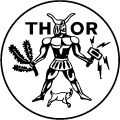Hong Kong is one of the two special administrative regions of the People's Republic of China (the other one is Macau). Under the policy of "one country, two systems", the Central People's Government is responsible for the territory's defense and foreign affairs, while Hong Kong Government maintains its own legal system, police force, monetary system, customs policy, immigration policy, and delegates to international organizations and events. The currency used in Hong Kong is the Hong Kong dollar. The name "Hong Kong", which literally translates to "fragrant harbour", is derived from the area around present-day Aberdeen on Hong Kong Island. This is an area where fragrant wood products and fragrant incense were once traded. Hong Kong's official languages are Chinese and English; signs in both languages are omnipresent throughout Hong Kong. The government, police and most workplaces and stores conduct business bilingually.
The Hong Kong special administrative region encompasses a collection of 262 islands and peninsulas in the South China Sea. While Lantau is the largest island, Hong Kong Island is the second largest and the most populated. Ap Lei Chau is the most densely populated island in the world.
Hong Kong maintains a highly capitalist economy built on a policy of free market, low taxation and government non-intervention. It is an important centre for international finance and trade, with the greatest concentration of corporate headquarters in the Asia-Pacific region. In terms of gross domestic product per capita and gross metropolitan product, Hong Kong is the wealthiest urban centre in the People's Republic of China. The GDP (PPP) per capita of Hong Kong exceeds the four big economies in Western Europe (UK, France, Germany, Italy), as well as Japan.
At present, Hong Kong has the world's biggest skyline with a total of more than 7,500 skyscrapers, placing it ahead anywhere else in the world, despite the fact that New York is larger in area.
Hong Kong has a highly developed and state-of-the-art transport network, encompassing both public and private transport. Over 90% of daily travels are on public transport, making it the highest percentage in the world. The Octopus card payment system can be used to pay for fares on almost all railways, buses and ferries in Hong Kong. The Octopus card uses RFID to allow users to scan their card without taking it out of their wallet or bag.
Besides Hong Kong, which is already full of interesting companies, we will also visit Shenzen as this is the largest industrial region in the world.
The temperature in Hong Kong at the time of our visit will be about 15 ░C at night and about 20 ░C at daytime.










